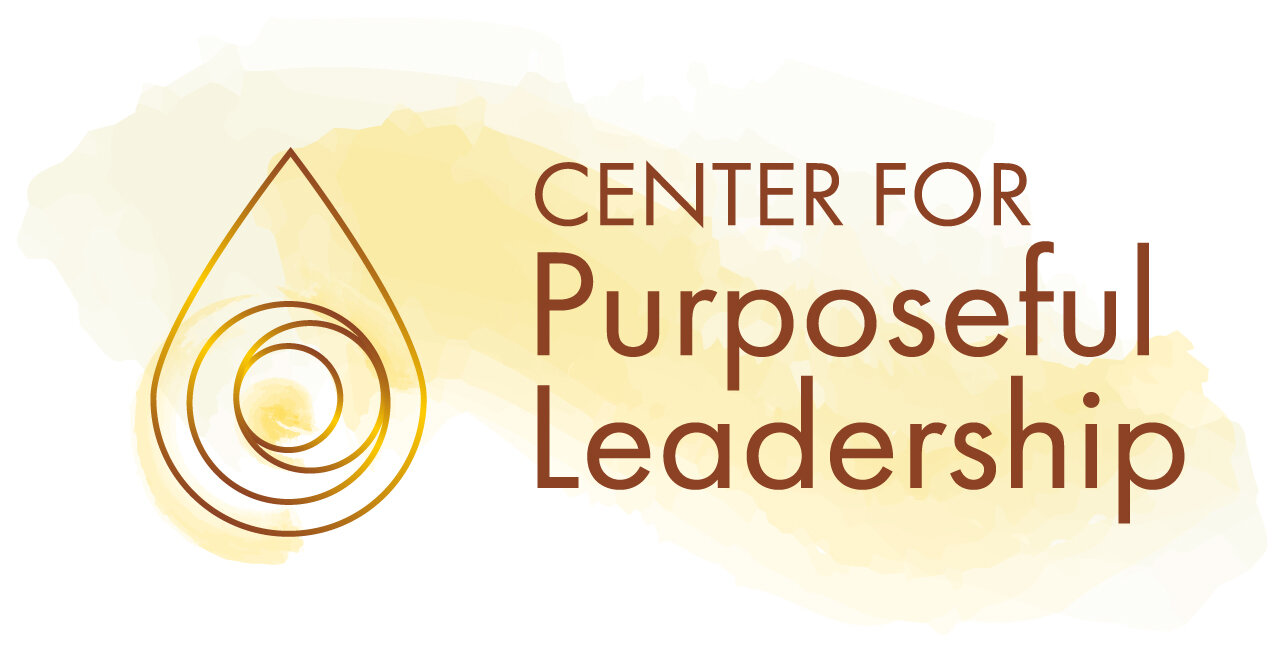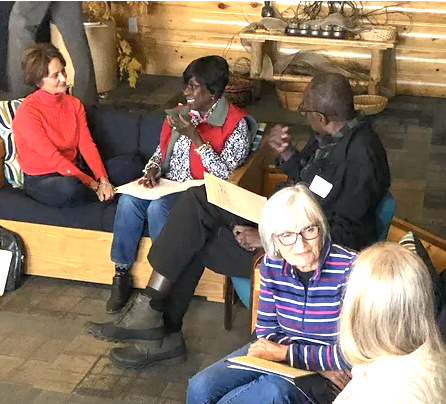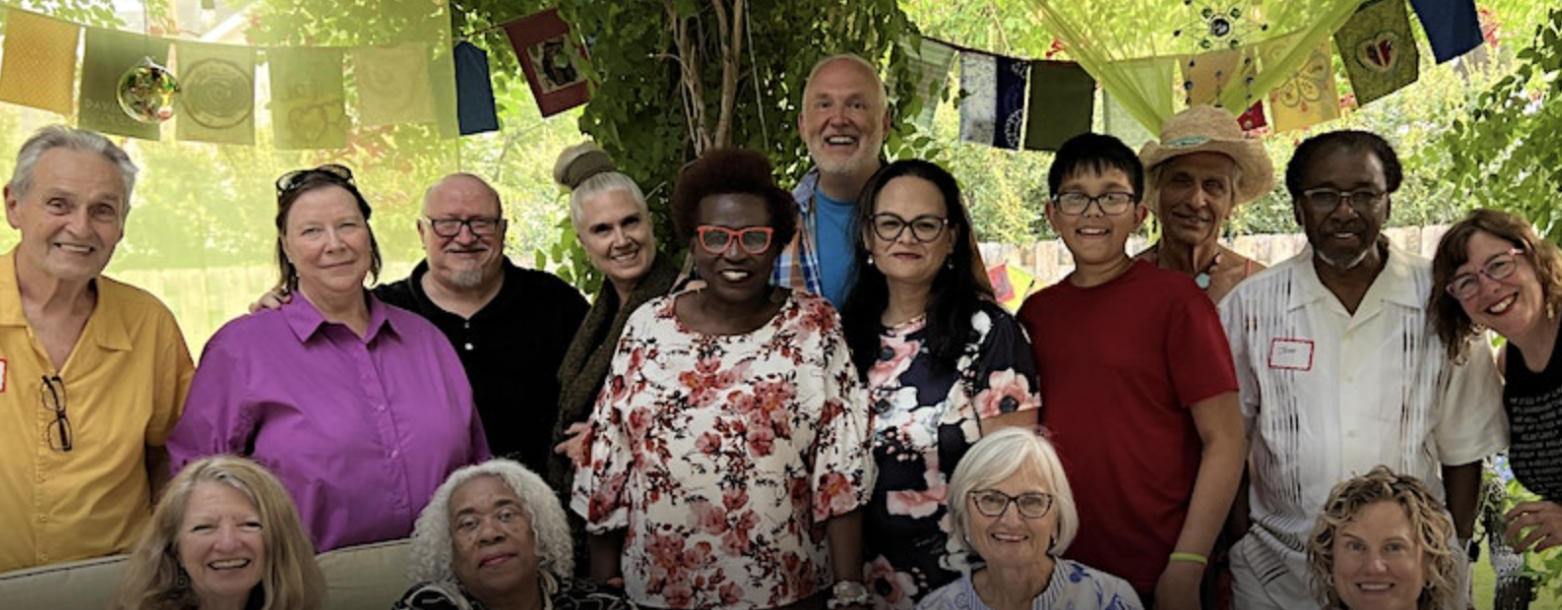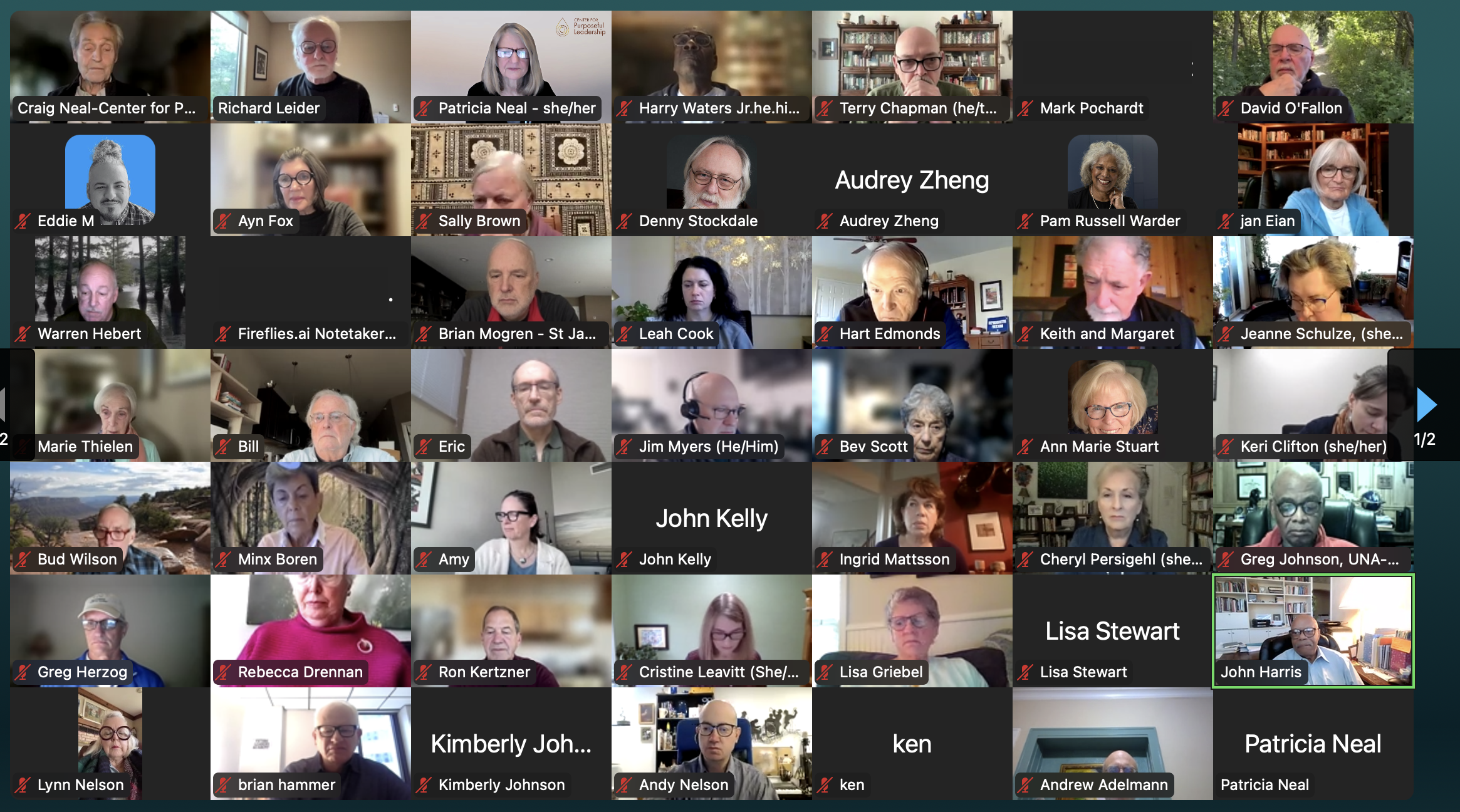Thanks-living*: Practice The Art of Deep Listening
/[This is a re-post from 2019 and 2020, with a post from friend Minx Boren, on Thanks-living.]
The Art of Convening can also be called The Art of Deep Listening.
This is Thanksgiving holiday week In the US. November is also Native American Heritage Month. Family, friends and neighbors may be gathering. There is a lot going on in the world and in each person’s life. This week, we invite you to practice the art of deep listening, as a way to connect or reconnect in new ways. We offer 3 practices and 2 exercises. Let us know how it goes!
Listening is the key to success: Mark Twain prophesized that “all people want is a good listening to.” Imagine being interested rather than interesting at the Thanksgiving table. In our book The Art of Convening we speak of our desire to hear from a place of deep listening, which can lead to authentic engagement with another person.
What allows this to happen is preparing by “Creating the Container.” We ask ourselves and others to agree to listen and speak from the heart, hold the space for differences, and seek brevity and sincerity in their remarks. The presence of trust and safety plays an important role in the quality of the conversation and the ability to maintain authenticity.
Here are three practices that support listening deeply:
1. Listening and Speaking from the Heart
We listen to each other’s stories with curiosity, wonder and attention. A natural respect for all voices emerges when we listen with respect for everyone’s voice without fixing, problem-solving or advice-giving.
2. Hold the Space for Differences
We invite and honor all points of view. We recognize and let go of our assumptions seeking to understand rather than persuade others. This is the tricky part. YES we all possess knowledge and make judgments that what we believe is logical, sensible, honest and true.
Be aware of letting what we think we know get in the way of what is so for the person being listened to.
Notice the tendency to focus on our own agenda. Listen to understand, rather than preparing to reply.
3. Seek Sincerity and Brevity in our remarks
There is power when we speak from our own awareness and authenticity. Sincerity is a strong attractor for others to engage in meaningful conversation.
Make our words count; respect the time for others to speak.
Speak what has personal heart and meaning.
Exercise: Deep Listening and Response
Keep in mind the following principles of good conversation:
Honor the mundane in creating common ground.
Be interested rather than interesting.
Seek to understand and be of service.
Honor the mundane. Consider starting the conversation with a question or comment about something accessible like the weather, your home or family. Listen to the response.
Be interested. Ask a genuine question about the person you’re talking with: how are they?
Seek to understand. Then listen and respond how you are, if appropriate. Notice how the rest of the exchange moves along.
* Exercise: A TIME FOR THANKS-LIVING
Cultivating a mindset of gratitude supports deep listening.
Art of Convening training graduate Minx Boren suggests the idea of Thanks-Living. In her weekly blog, Balance Point, she offers for our reflection:
“A Question Worth Asking Each and Every Day: ‘For what am I truly grateful today?’”
She goes on to say… “‘it's about GRATITUDE. It's about offering thanks for all that we have, all that has been made available to us. It's about recognizing all we have been given, all that has been made possible. And it's about opening our hearts and arms and pantries and coffers to those who perhaps, for the moment, have less.”
Let us know what your practices are and what you noticed this week to bring more connection in your life.
"You can never get to peace and inner security without first acknowledging all of the good things in your life. -- Doc Childre and Howard Martin, HeartMath, HeartMath Institute
• Scientists Show How Gratitude Literally Alters The Human Heart & Molecular Structure Of The Brain
• Giving thanks may make your brain more altruistic
• Conversational Intelligence
• Words Can Change Your Brain
• HeartMath, HeartMath Institute
#purpose #artofconvening #gratitude #convening #listening #leadership #practice #authenticengagement











